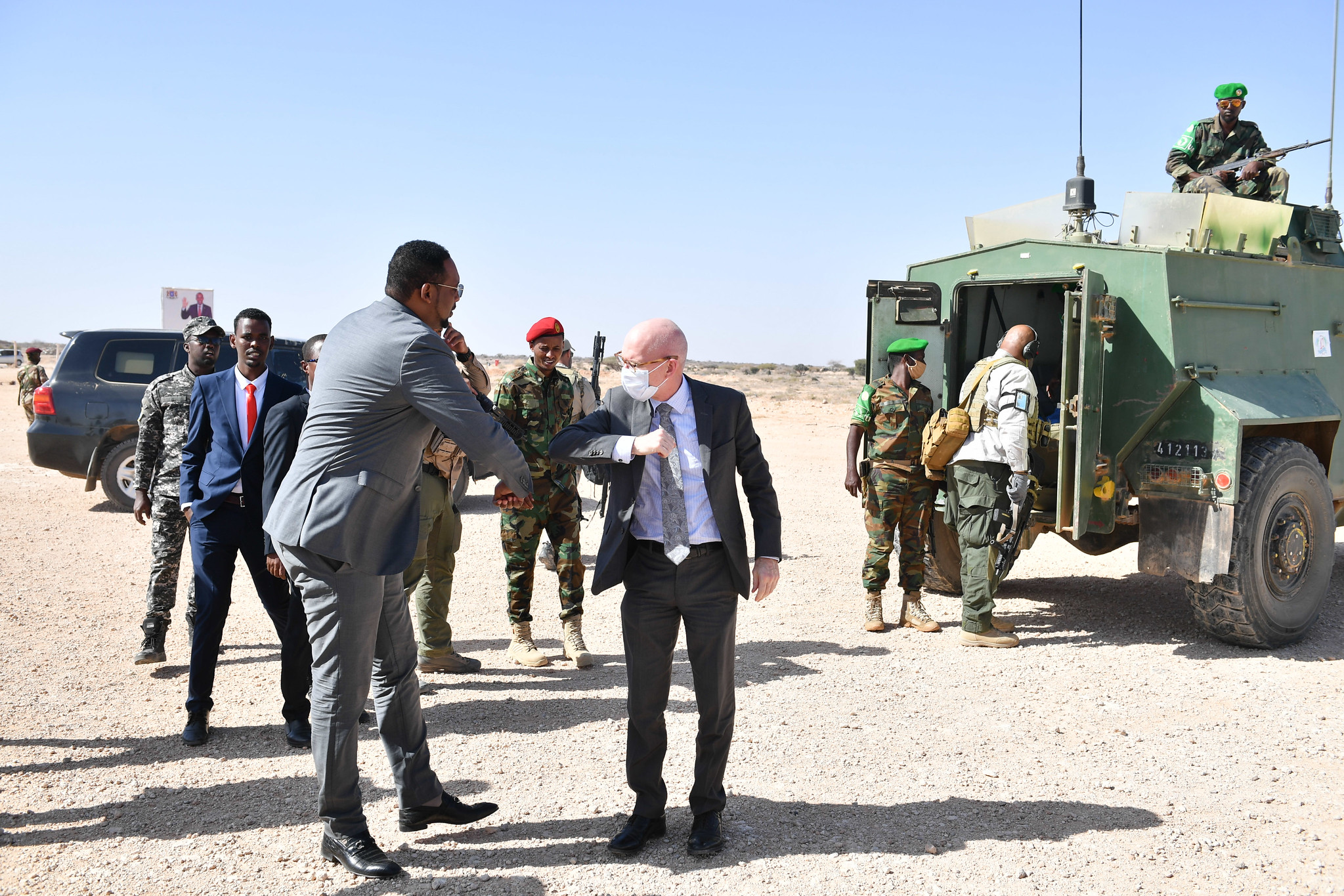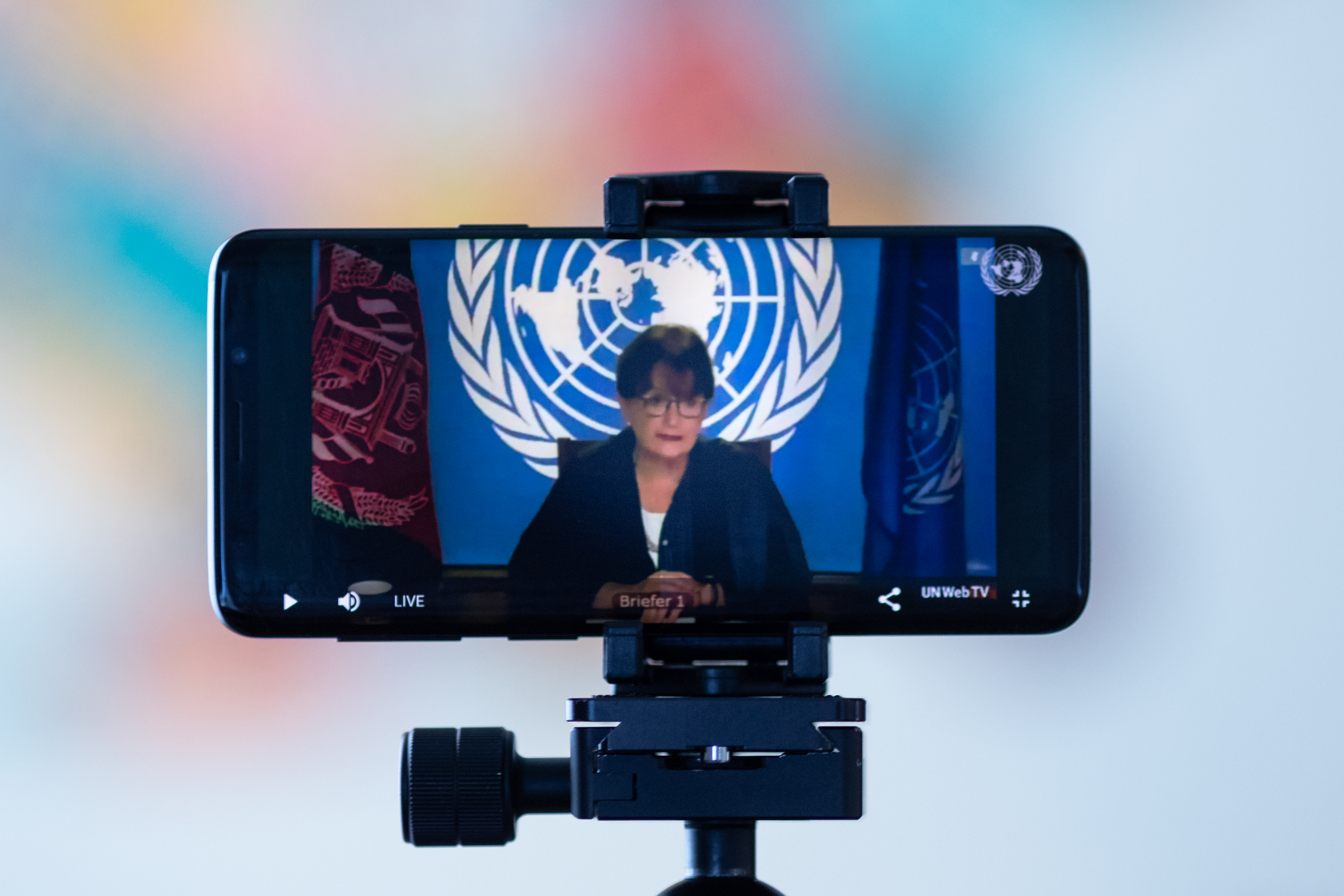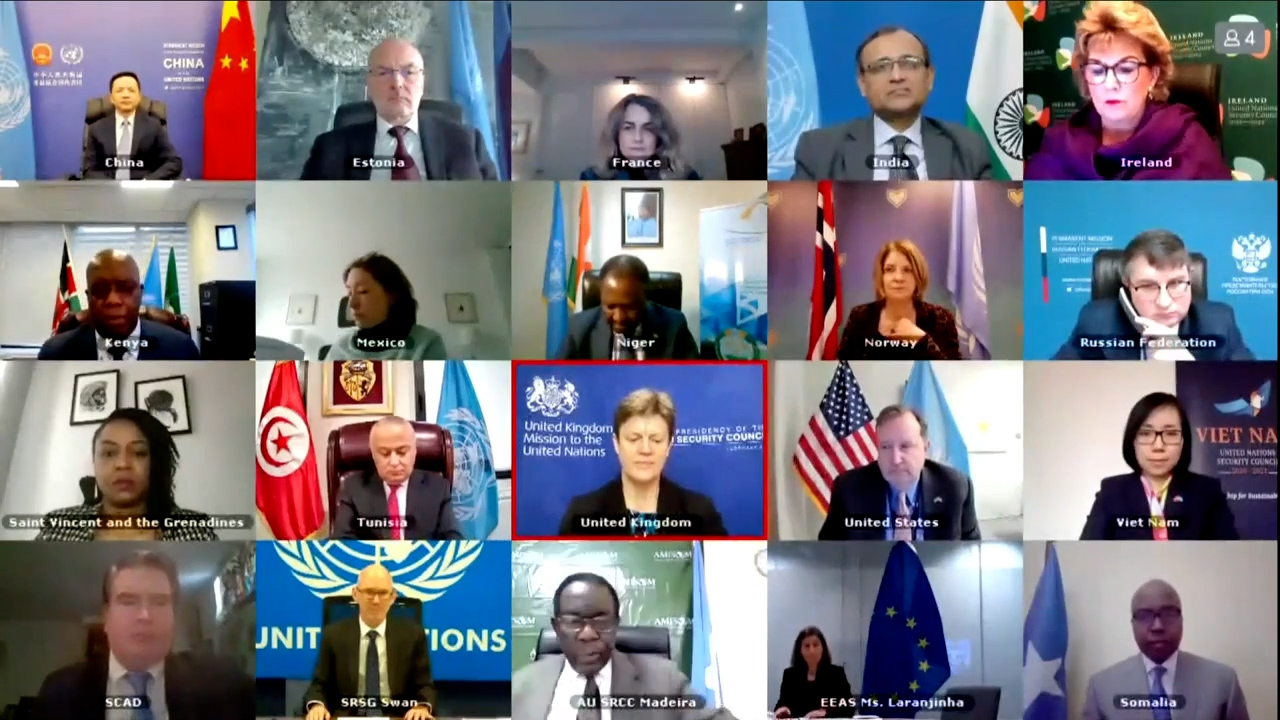PS FORUM
It is one year since the novel coronavirus began its devastating march across the world. The pandemic is still very much a reality, but with the vaccine rollout gathering pace and rates of infection falling in parts of the world, it is possible to begin to imagine the recovery. The end of COVID-19 will not necessarily mean a “return to normal” for the United Nations. Nor should it, argues our colleague Blanca Montejo, of DPPA’s Security Council Affairs Division. For this first installment of PS Forum — a new Politically Speaking feature highlighting perspectives, ideas or initiatives from our colleagues and partners — we spoke to Blanca about what she believes was lost as the pandemic hit the UN and the Council last spring, but also about what has been gained and should be maintained, and built on, in the future.
Your work affords you a close view of the work of the Security Council. How has the pandemic changed that work?
As it did everywhere, COVID-19 affected work at UN Headquarters in New York quite extensively. As of 16 March 2020, meetings of all forms and sizes were cancelled, conferences were postponed and committees, commissions and even meetings of the Security Council were put on hold. Videoconferences have become the new forums for human interaction and dialogue. There is a sense of loss. Lost is the physical presence, the gestures and body language, the crowds, the sense of action … even the sense of political momentum.
I’ve heard from many delegates that they are eager to return to their daily interactions and dialogue, to informal negotiations in conference rooms, corridors and cafés.

We often hear that COVID-19, though catastrophic, presents an opportunity to “rebuild better”. How do you interpret that?
I tend to agree. Thanks to technology, meetings among Member States (including at the highest levels of government) can now be held rapidly online and in response to rapidly evolving crises. Despite the technical difficulties, meetings are now easier to hold and faster to convene from almost anywhere. Meetings with civil society and a wide variety of other actors have become less cumbersome and almost “paperless”. New ways of “doing business” are emerging. While technology needs to evolve further and show its full potential and impact, a lot has already been achieved. The pandemic has accelerated change in working methods across the UN.
You say meetings, including with civil society, have become less cumbersome. Has the work of the Council become more inclusive?
Well, the increased use of new media in the conduct of UN business has made it easier to get closer to the ground. With travel now heavily restricted, direct contact with those living through conflicts and crises is now a necessity and is likely to change the interaction of the Council with civil society in the years to come. Virtual missions and the potential for such initiatives to enhance the UN’s impact is enormous. Directly addressing the parties to a conflict, including non-state actors used to be a difficult, if not impossible, endeavor. Imagination combined with technology may bring forward solutions that were unthinkable only a year ago, solutions that will be more sustainable, less harmful to the environment and more cost-effective. The crisis has accelerated the development of new solutions and working methods.
Is the work more transparent?
I do think that across the UN transparency has been enhanced. Informal meetings of principal organs are now being regularly broadcast, new documentation is being explored, new data is being generated and posted online and the potential of that information being known and shared is incalculable. The crisis has opened up the doors of the UN to a broader audience.
As we prepare to mark the first anniversary of the pandemic, what’s your biggest takeaway about how it affects your work?
From a human perspective, the pandemic has made us more sensitive to the risks of the future. This past year, the main UN organs have discussed crucial topics for the future of our planet, such as climate and security, the humanitarian effects of environmental degradation, pandemics and the challenges of sustaining peace and global governance post-COVID-19. The Charter of the United Nations has proved its adaptability once again. But I think a real operational framework still needs to be created by Member States with the support of the Secretariat to conduct UN business under these and other exceptional circumstances. Moreover, the crisis has revealed what happens when there is a lack of multilateral cooperation in tackling a global threat. Clearly, the world was not prepared.
From my standpoint, I believe that a vision for the future of the UN must include creativity, technology and courage. Secretary-General António Guterres has spoken of three main elements for the future of multilateral cooperation: the need for it to be networked, inclusive and transparent. The pandemic has offered a glimpse into what this future could look like.
In any case, we cannot simply go back to “normal” without addressing the serious gaps revealed by the crisis. We have the chance to build an agile and resilient infrastructure capable of preventing the next global crisis and to ensure that the UN will be there for at least another 75 years.

Header photo: Screenshot of the Security Council discussing Somalia, 22 February 2021. Credit: UNSOM/SCPAG.
